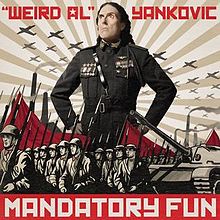The Opiate of the Masses: How is unproductive enjoyment merely an extension of labour?
Most people working a full time job need an escape from the workday, it might happen in a gap during the day or it may happen after work, but regardless that escape allows us, the workers, to continue to function from day to day. I'm sure everyone has seen a situation where someone is forced to continuously to work for more than 8 hours a day, or just generally worked too hard. We even have a phrase for it: Burn out. We even retreat to traditional form of escape, it may be the latest episode of the a reality TV show or even the newest iteration of a popular gaming series, and, for a while, we can turn off and zone out to enjoy ourselves.
If I was to ask you what kind of culture these escapes belonged to you would probably respond with some variation of the terms low culture, crass culture, mindless etc. In fact society continues to enforce this idea of 'Unproductive enjoyment', that is enjoyment that creates no value outside of the pure pleasure we get from it. Alfie Brown (2015) even goes into details on what is considered the opposite of this, productive enjoyment, painting it as entertainment that has a status within culture. Forms such as independent film, literature, operas and the like are common examples of this kind of entertainment with cultural value. All of these forms are considered high brow, high culture and generally seen as a positive use of time. But what really defines this for society?
Take for example Shakespeare's work, when he first created his plays they were an attempt to target the common man, that is he originally created them to serve as pop culture. The success of these plays was partially due to the open-air, large Globe theatre, which was almost always packed with people who desperately wanted to watch his plays. This idea of Shakespeare's status as pop culture wasn't simply echoed by his patrons, but in 1642 there was a parliamentry edict to ban his plays for 20 years, describing them as "spectacles of pleasure, too commonly expressing lascivious Mirth and Levities" (Goldstein, 2013). However, during the restoration period his play's locations traded in the large open air and more importantly cheap performances for smaller theatres, with the price raised significantly, only really catering to the aristocrats. And from this change Shakespeare's work evolved from popular (or unproductive) culture to high (or productive) culture.

So if, as it seems, capitalism does infact control what is considered high and pop culture by a meter of supply and demand, how does it benefit from unproductive enjoyment? In order to fully understand the history and evolution of this situation we need to look back the Victorian era and the idea of "Rational Recreation". Around 1860 the government in the UK had realised how important time away from work was for the happiness of workers. This was particularly pushed at the time due to large scale creation of labour unions in the 1850s, and began creating what we know in the modern age as the working week. However, with this increase in leisure time there was influx of activities that the upper class frowned on, such as drinking, pleasure seeking and radical political views. In order to combat this the overseers pushed ideas of recreations they approved of in order to create the 'model citizen'. A good example of this was penny readings, where for a single penny admission the working class could turn up to a public location and hear readings of The Times, literature and hear popular music played (Beaven, 2005). This was one of the earliest example of creating and marketing entertainment for the sole purpose of allowing the working class to continue to work happily the next day.
Surely someone would rebel against this? There is an ideal, commonly held, that artists are pure souls who create art for art's sake, but with only the evidence of what drives the culture industry forward, we unfortunately see a different result. The mass culture industry continues to churn out entertainment after entertainment, rewarding anyone who continues to work within the system and thus being able to afford these luxuries. Even greater an idea which is presented to the working class is the idea that we could be cultural stars ourselves. Part of what made reality TV so successful was the idea that any of these celebrities we see could have come from the exact same background as we did, and were nothing more than lucky.

It is important to note that I'm not suggesting that there is a shadowy figure sitting above the culture industry pushing the creation of this popular culture, it's something that naturally happens as our society moves forward, in an almost cyclical nature. It is even echoed on the small scale in small businesses through activities such as Christmas parties, dinners, movie nights, even taking a long lunch on Melbourne Cup day in order to celebrate.
This production and marketing of unproductive culture is also referred as mass culture. Adorno (1944) proposed this term, liking it to the idea of a factory creating masses of cultural goods that are used to manipulate society as a whole into indifference to the idea of working. Through this they can be sure that their workforce continues to be productive during the working hours. Through this commodification of our leisure time, freedom from the workplace is simply a prolongation of the working day, as it is given to the workers so they can return to work happy. Therefore, this low, unproductive culture is sold to the working man not just as an escape from their work, but in order to destroy “any last thought of resistance” (Adorno, 1944)
References
Adorno, T., & Horkheimer, M. (1944). Dialectic of enlightenment.
Beaven, B. (2005). Leisure, citizenship and working-class men in britain, 1850-1945 (Studies in popular culture). Manchester: Manchester University Press.
Bown, A. (2015). Enjoying it: Candy crush and capitalism. John Hunt Publishing.
Featherstone, M. (2007). Consumer culture and postmodernism (Published in association with theory, culture & society). London: Sage Publications.
Goldstein, R. J. (Ed.). (2013). The frightful stage: political censorship of the theater in nineteenth-century Europe. Berghahn Books.
Lemuel, M. (2013). The commodification of leisure. Heathwood Institute and Press.. Retrieved 1 March 2018, from http://www.heathwoodpress.com/commodification-leisure-part-i-art-culture-industry/